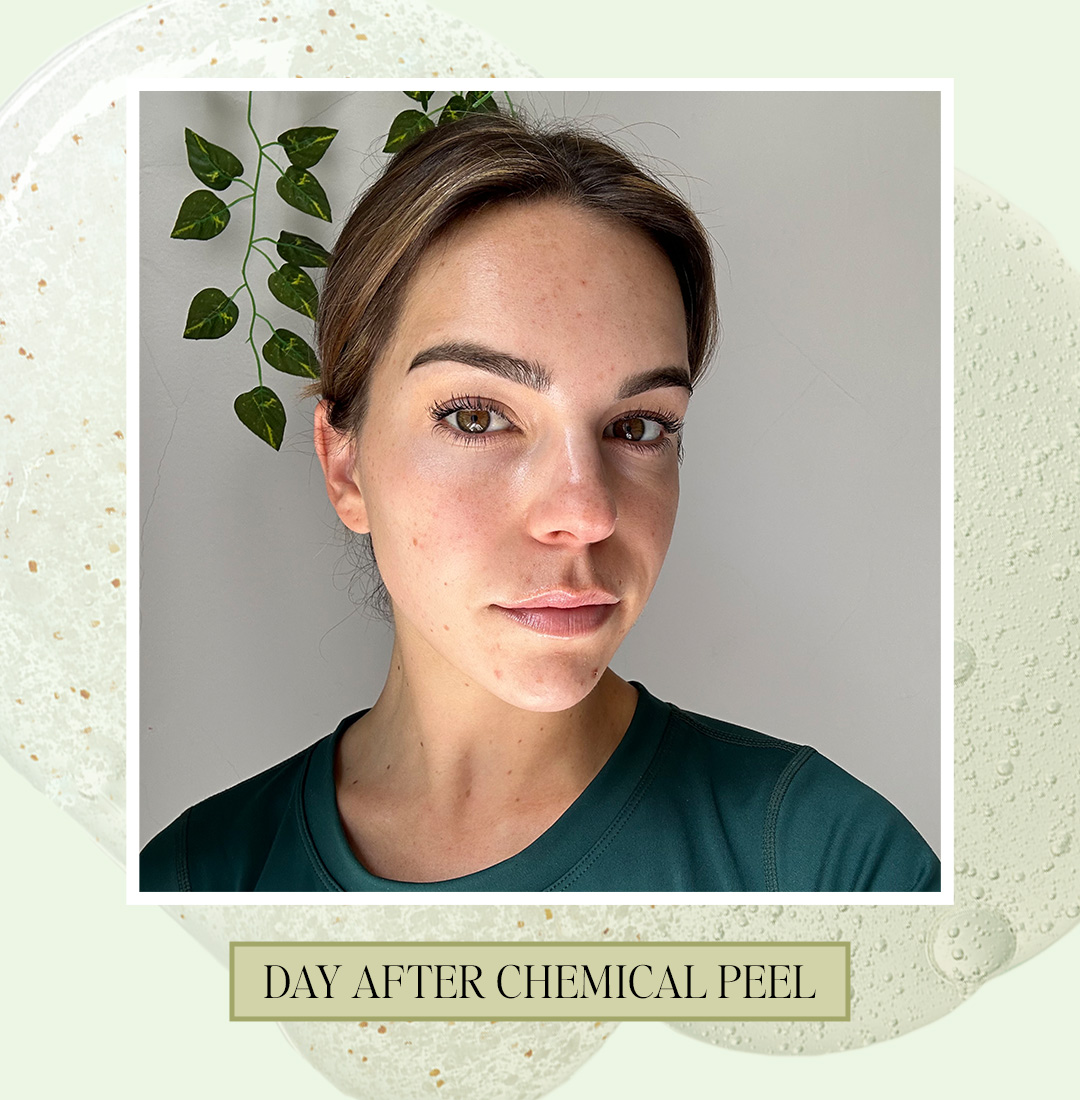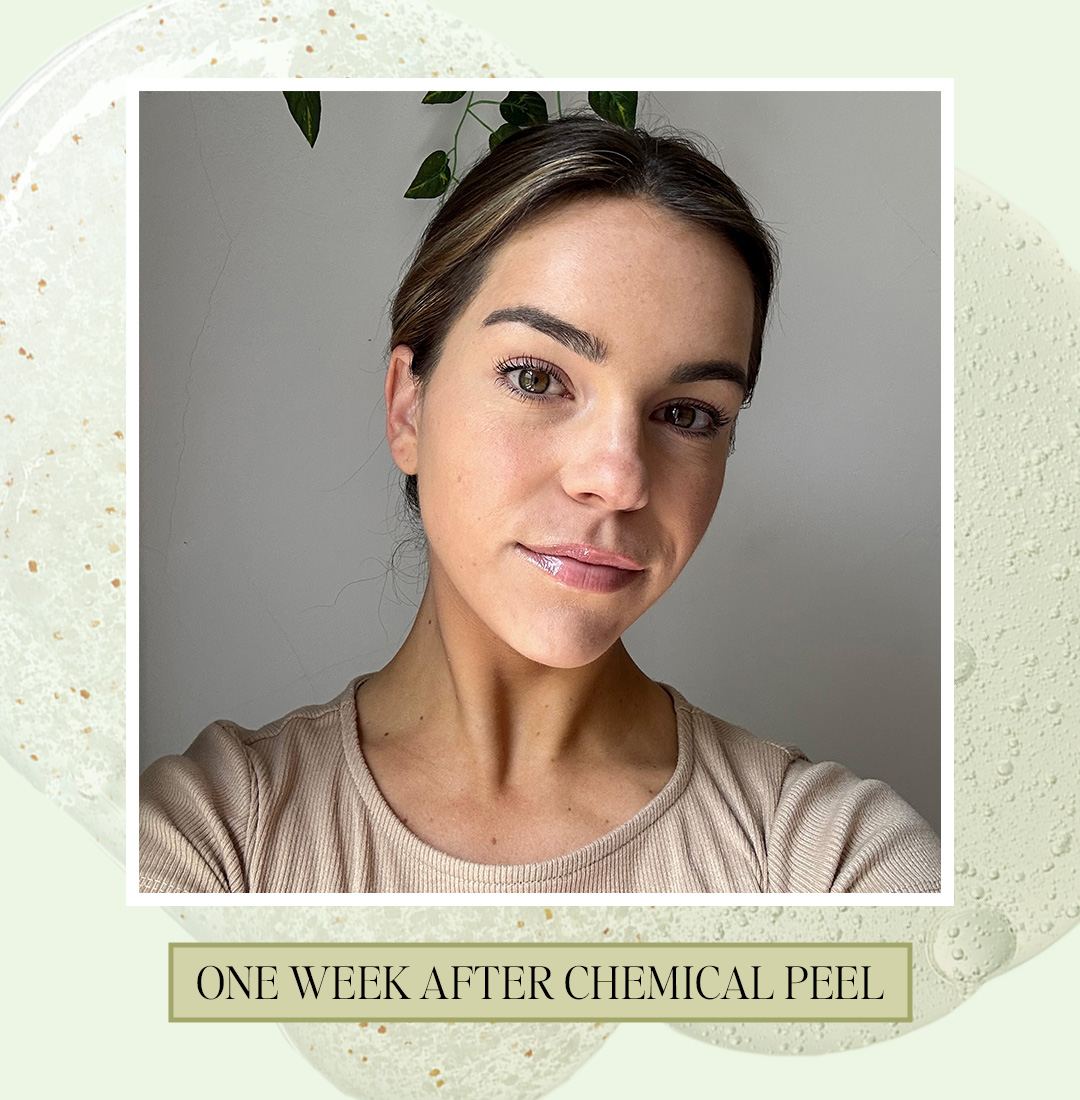When I was younger, I would look at the models on magazine covers and wish more than anything that I had an airbrushed complexion like theirs. For years, I struggled with hormonal acne, hyperpigmentation, dullness, and fine lines. I would wear full-coverage foundation in an attempt to camouflage my skincare concerns, which only made them worse. When I wasn’t covering my face in makeup, I was concocting DIY face masks, dousing blemishes in zit cream, and applying wrinkle cream everywhere I could.
turns out, you don't have to spend all of your free time cleaning
My insecurities ultimately led me into the world of beauty, where I spent hours researching which products would transform my skin. While I did find a handful of reliable moisturizers, serums, sunscreens, and more, I still wasn’t getting the results I wanted. Because of that, I decided to look into treatments—instead of products—to see if I could reverse my skin’s damage altogether, as opposed to simply subduing it.
That’s when I came across chemical peels. The term itself made me wary, and I was unsure if I wanted to undergo such a serious treatment. However, after years of quarreling with my skin, I was ready to do whatever it took to get a magazine-worthy complexion—and I’m so grateful I did.
Ahead, learn more about chemical peels and how they can transform skin in one week flat.
What is a chemical peel?
A chemical peel is a procedure in which a chemical solution is applied to the skin (usually on the face) to remove the top layers of the skin. According to Medical Aesthetician at Shafer Clinic Lucia Miranda, “Chemical peels offer exfoliation to boost cell turnover, remove dead skin cells, for a brighter, smoother, and a more even complexion.” Essentially, these types of treatments effectively address, target, and treat wrinkles, discoloration, scarring, and uneven texture. Peels can range in their depth, from light peels where the skin lightly flakes to deep peels where multiple layers of skin come off.
When I got my first peel, I noticed that it was essentially like a snake shedding its skin. One day after getting the peel, my face felt a bit tight. Two days later, visible flaking was happening around my mouth and on my chin. Three days later, my cheeks and forehead began to peel. On the fourth and fifth days, the peeling around my mouth and chin was complete. Finally, after seven full days, my whole face had peeled and I was left with fresh, glowing skin.
(Note: Although the name itself sounds a bit harrowing—and the fact that the procedure literally peels off a layer of skin—chemical peels are not painful at all. There are some cases where the skin can feel a bit itchy, but when moisturizer is applied, the skin can be soothed.)
My Experience With Chemical Peels
Before we get into it, I want to give you an idea of what my journey with chemical peels has looked like. In 2020, I got my first peel. I desperately wanted to address the hyperpigmentation, acne scars, and fine lines that I had on my face. I opted for a TCA peel (more on that later), and within two days, my skin had begun peeling off. After seven days, my skin had completely changed and looked better than it had in years. The dark spots were lightened and the fine lines had been softened. After that, I was a convert. I’ve gotten three chemical peels since then, and each time, the results have shocked me.

Most recently, I got a Glo Skin Beauty chemical peel. This specific kind of peel, which is offered in select dermatologists’ offices, has been my favorite treatment yet. For starters, this is not a one-size-fits-all kind of treatment. Six different peels are offered. The kind of peel you get depends specifically on your skin, your skincare concerns, and the results you want to achieve. I wanted to address a few acne scars as well as overall hyperpigmentation. Because of this, I was recommended to get the Beta-Clarity AHA Clarifying Peel. (Here is a photo of my skin one day before the treatment.)
Additionally, just because this is a peel, it doesn’t mean you’ll actually peel. However, you will still see the same results. This was my favorite part of the peel since there was virtually no downtime. I did experience some light flaking, but it was nothing some moisturizer couldn’t cover up.
Plus, peels bring all the blemishes to the surface. I had a zit on my chin, which the peel was able to target and address. Although the zit did look darker for a few days during the treatment, it eventually fell off and left very minimal signs of hyperpigmentation.

Lastly, these peels deliver seriously impressive results. My acne scars are much less visible, as is the overall hyperpigmentation on my face. This peel also helped flake off blemishes, leaving my skin texture smoother. I also noticed that the smile line around my mouth was softened, too. My skin was still a bit dry following the peel (especially around my chin), but it was nothing a little moisturizer couldn’t fix.
The results I achieved are so good, I don’t wear foundation or CC cream anymore – which says a lot, coming from someone who used to rely on full-coverage formulas.

Your Chemical Peel Questions, Answered
What kind of chemical peels are offered?
Four main types of chemical peels are offered in dermatologists’ offices. There are AHA peels, BHA peels, TCA peels, and Phenol peels. AHA and BHA peels are the lightest of the peels. With an AHA or BHA peel, patients can expect light flaking. On the other hand, TCA peels are medium-depth peels, which patients can expect to fully shed the top layer of their skin. These kinds of peels are ideal for anyone dealing with extreme hyperpigmentation and discoloration. Lastly, Phenol peels are deep peels in which patients will need about two weeks of downtime.
No matter what peel you get, keeping your skin protected both during and after treatment is extremely important. This means always wearing sunscreen with an SPF of 50 or higher, as well as limiting the amount of time you are in the sun. Plus, moisturizing is equally important since the skin barrier will be weak after undergoing a peel.
Who can benefit from a chemical peel?
Anyone who suffers from dark spots, acne scars, discoloration, hyperpigmentation, and uneven texture can benefit from getting a chemical peel. Peels quickly and effectively remove the top layer of skin to reveal softer, smoother, and brighter skin.
Is a chemical peel good for the skin?
Overall, yes, chemical peels are good for the skin. “They are beneficial to address every skin concern and skin type including those looking to target acne, sun spots/melasma, hyperpigmentation, aging skin, and scars,” explains Miranda. It’s worth noting that chemical peels can dry out the skin, so people with extremely dry skin should be cautious. However, applying a thick moisturizer can keep the skin hydrated.
What are the downsides of getting a chemical peel?
The downsides of chemical peels are limited. “Peel treatments can cause temporary redness, itching, peeling, and slothing of the skin for three to seven days post treatments,” says Miranda. However, there are no downsides following the procedure. According to my experience, my skin is always brighter, healthier, and smoother than before. I will say that my skin is a bit drier after a peel, so hydration is key.
How long do the results of a chemical peel last?
The results of a chemical peel last for months. The skin is completely renewed and refreshed post-treatment. Because a new layer of skin is exposed, it’s extremely important to wear (and reapply!) sunscreen every day. Depending on peoples’ skin concerns, they can get a chemical peel every three months.
Are chemical peels worth the money?
According to my experience, chemical peels are worth every penny. These treatments can target discoloration, scarring, uneven texture, and so much more in one single session. Additionally, the results can last for months. It’s worth noting that chemical peels can range from $150 to $600+ depending on what treatment you get. Although they are expensive, they have transformed my skin better than any product ever has.



 "
"

